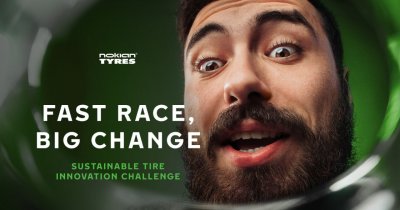The environmental impact of a new smartphone
Even the manufacturers themselves acknowledge that smartphones generate significant pollution. According to Apple, making and using an iPhone 12 (256 GB) produces 85 kg of CO2. The manufacture of the device alone represents 83% of these emissions; use, 14%; transportation, 2%; and eventual recycling, 1%.
Although the environmental impact of the latest models is typically lower than previous versions (again, according to Apple, an iPhone 12 produces 2 kg of CO2 less than an iPhone 11), the consequences for the planet remain significant, as the impact is not limited to CO2 emissions alone.
The dangers of WEEE (Waste Electrical and Electronic Equipment)
According to Eurostat, WEEE amounts to as much as 12 million tonnes per year in the European Union. The build-up of this type of waste is a major problem for the environment, as less than a third of it is ultimately collected and stored.
WEEE is a complex mixture of toxic components that pose major health risks to the public. People living near landfills are exposed to materials which the United Nations describe as dangerous – such as mercury, the fumes of which can cause serious brain damage.
The extraction of raw materials
According to a study by the European Economic and Social Committee, manufacturing a smartphone that weighs just 164 grams uses 44 kg of raw materials.
More than 70 materials are needed to make a smartphone, according to ADEME. Raw materials such as gold, silver, copper, beryllium and cobalt are used to make smartphone screens and electronic components. Many NGOs have drawn attention to the conditions for extracting these materials. Amnesty International regularly warns the public that many miners work in Congolese cobalt mines.
The advent of refurbished smartphones
In Europe, the first refurbished smartphones arrived on the market about ten years ago, courtesy of the French pioneer Recommerce Group. According to Que Choisir, 10 to 15% of the phones sold in France are refurbished – a market that is growing at 10% a year.
To conquer this colossal market, specialized start-ups have been set up all over the continent. Leading companies have one thing in common: they position themselves as eco-friendly, sometimes bordering on activism.
Reconditioners’ arguments
According to Apple, manufacturing a 32GB Phone 7 generates 56 kg of CO2. Choosing the same model, but refurbished, saves the production of more than 30 kg of CO2. In addition, it takes 44 kg of raw materials to manufacture a new device, compared to only 4 to 10 kg to recondition one. Finally, extending the life of a smartphone via refurbishment automatically produces less waste.
Refurbished players also persuade new customers with economic arguments. Refurbished phones come with a 6-24 month warranty, in nearly-new (or even as-new, depending on the grade) aesthetics and working condition, and up to 50% cheaper.
The gradual shift from a consumerist to a circular economy
If the environmental and economic arguments in favor of refurbished smartphones are so convincing, then why aren't they obvious to more consumers?
Perhaps because there is still one final obstacle to be overcome for refurbished phones: the smartphone as a status symbol. For many consumers, owning the latest model is above all a matter of image. Consciously or not, the telephone is often seen as an outward sign of wealth, especially in Eastern Europe.
However, as we shift from a consumerist to a circular economy, consumer mentalities are changing. Slowly but surely, a new systemic model, that of sustainable development, is gaining ground all over Europe. In this new era, informed consumers are no longer those who buy the latest model of smartphone, but those who prefer a previous version – refurbished.
Is refurbished becoming the new chic? If it is, the first five letters of the word smartphone will take on their full meaning.
------
Grégoire Vigroux is a French Serial Entrepreneur and Business Angel, based in Romania since 2006. He co-founded and invested in 21 businesses across Eastern Europe and had 4 exits. Among other businesses, Grégoire serves Recommerce Group, one of the European leaders in smartphone refurbishment, as a Co-Founder for Eastern Europe and Senior Advisor. The French entrepreneur believes entrepreneurs have an increasing role to play in shaping a meaningful world. He thinks success, in business, must come with responsibility. Profits with purpose. Growth with progress. Prosperity with philanthropy.
 Grégoire Vigroux
Grégoire Vigroux












Any thoughts?